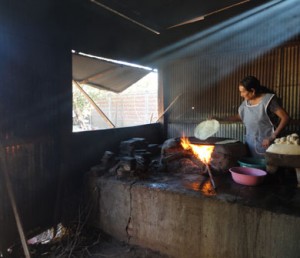March 19, 2015—The Center for the Study of Women in Society at the University of Oregon recently awarded about $111,000 in graduate student and faculty research grants to support research on women and gender during the 2015-16 Academic Year. The funded scholars come from across the university, representing a number of departments in the College of Arts and Sciences as well as the School of Journalism and Communication and the School of Law. Research projects to be funded include a study of Burmese women in Chinese border cities; a study of gender and narrative among weight loss surgery patients; and a book project that in part explores a history of communication in mass incarceration systems between women of color and their families. CSWS will also fund research on gender in the hen house; recruiting and gender in the U.S. Armed Forces; Spanish women in the French Resistance; gender, race, and religion in the early Venezuelan Republic, and much more. In all, twelve UO graduate students will receive awards ranging from $1,900 to $2,500. Eight faculty scholars will receive awards ranging up to $8,000 each. The Jane Grant Dissertation Fellowship, which goes each year to an outstanding doctoral candidate, includes a stipend, health insurance, and a tuition waiver, and this year totals about $33,000.
Jane Grant Dissertation Fellowship
- Iván Sandoval Cervantes, a PhD candidate in the Department of Anthropology, was awarded the prestigious Jane Grant Dissertation Fellowship. His dissertation topic is “The Intersections of Transnational and Internal Indigenous Migration: Gender, Kinship, and Care.” He will be giving a CSWS Noon Talk on April 22. Sandoval’s project is based on more than twenty months of multi-sited ethnographic fieldwork with the community of Zegache in Zegache, Oaxaca; Mexico City; and Salem, Oregon.
Sandoval wrote in his abstract: “While most of the studies of migration focus either on transnational or internal migration, this project looks at the intersections of transnational and internal migrations through gender, kinship, and care relations. In the indigenous Zapotec community of Zegache, men and women migrate differently. Gendered migration is informed by the different kinship and care responsibilities that women (as mothers, sisters, and daughters) have as caretakers while men (as fathers, brothers and sons) are seen as the ‘breadwinners.’ By taking into account how gender roles inform different gendered migrations while, at the same time, redefining gender roles, this project shows how women’s internal migration often allows men’s transnational movements. ” Note: The Dean of the Graduate School will provide the Jane Grant Dissertation Fellow with tuition remission for the 2015-16 academic year. CSWS awards a stipend and also covers health insurance and fees.
Graduate Student Research Awards
- Lisa Beard, Department of Political Science, “If We Were Kin: Identification and Intimacy in Queer of Color and Feminist Antiracist Politics.”
- Kelsey Cummings, School of Journalism and Communication, “Gameplay Mechanics, Identity, and Ideology in Girl Games.”
- Jeremiah Favara, School of Journalism and Communication, “An Army of Some: Recruiting, Diversity, and Difference in the US Armed Forces.”
- Erin Gallo, Department of Romance Languages, “The Dark Side of the “Mexican Miracle”: Transnational Feminist Engagements in Mexican Women-Authored Literature (1950-1980).”
- Tobin Hansen, Department of Anthropology, “Masculine Self-Identities and Gendered Living in a Northern Mexico Deportee Community.”
- Elizabeth Miller, Department of Sociology, “Gender in the Hen House: The Social Worlds of Industrial Poultry Farming.”
- Thomas Schmidt, School of Journalism and Communication, “From Women’s Pages to Style Pages: How the Washington Post Discovered Diversity.”
- Nagore Sedano, Department of Romance Languages, “Co-edition of Basque American Terese Laxalt´s Unpublished Manuscript (Provisional title of introduction: ´Mama Laxalt´ brings poetry to the Nevadan sheep camps: the silenced Basque female voice).”
- Danielle Seid, Department of English, “This Body Could Be Mine: Gendered and Sex(ual) Labor in Asian American Literature and Film.”
- Anna Sloan, Department of Anthropology, “Yup’ik Gender Ontologies through Time: Contemporary Voices Speak to Archaeological Questions.”
- Lauren Stewart, Department of Sociology, “Embodied Masculinity and Sexual Pleasure
- Alexis Yalon, Department of Anthropology, “Embodied Transformations: Gender and Narrative Among Weight Loss Surgery Patients.”
Faculty Grant Awardees
- Alisa Freedman, Department of East Asian Languages and Literatures, “Learning Lives: Forgotten Stories of Japanese Women at American Universities in the 1950s and 1960s.”
- Gina Herrmann, Department of Romance Languages, “Spanish Women in the French Resistance and Ravensbruck.”
- Sharon Luk, Department of English, “The Life of Paper: Imprisoned.”
- Michelle McKinley, School of Law, “Bound Biographies: Reconstructing the Lives of African Descent Peoples in the Early Modern Iberoamerican World, 1585-1685.”
- Xiaobo Su, Department of Geography, “Gender, Ethnicity, and Citizenship: Female Burmese Workers in Chinese Border Cities.”
- Analisa Taylor, Department of Romance Languages, “Between Longing and Memory in the Lacandon Rain Forest: Mayan Women Speak.”
- Elizabeth Wheeler, Department of English, “Disservice Animals: Hyperbole and a Half and the Bad Subjects of Disability and Animal Studies.”
- Reuben Zahler, Department of History, “Gender, Race, and Religion in the Early Venezuelan Republic, 1800-1850.”
Giustina Endowment for Research on Women in the Northwest
Funds for two of the award winners come from a separate endowment, the Mazie Giustina Endowment for Research on Women in the Northwest. Both are listed among the faculty awardees but are singled out here to emphasize the significance of the Giustina Endowment, which has funded research projects through CSWS since 1995. These include: 1) Alisa Freedman, who is launching research for a book on Japanese women who traveled to the United States for study in the 1950s and 1960s with the support of GARIOA and Fulbright fellowships—many of whom were students at University of Oregon—and became professors, translators, authors, and even university chancellors; and 2) Elizabeth Wheeler, whose research project constitutes the final chapter of a book and focuses on a Pacific Northwest woman writer-artist whose work challenges dominant paradigms of disability and environmental studies.


